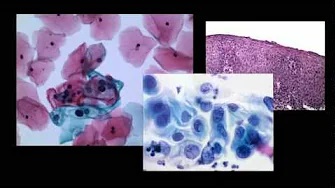Performance of a 50-gene Next Generation Sequencing Panel with Post-Centrifuge Supernatant cCytology Fluid in Non-Small-Cell Lung Cancer
Document Type
Article
Publication Date
11-1-2021
Abstract
BACKGROUND: Liquid based cytology (LBC) specimens are increasingly utilized for molecular analysis, as results are comparable to molecular analysis performed on traditional specimens (biopsy or cell block). However, there are few studies demonstrating the long-term viability of DNA in LBC samples.
METHODS: In this study, a 50-gene next generation sequencing (NGS) panel was performed on DNA isolated from post-centrifuged supernatant LBC samples of cases of non-small-cell lung carcinoma. Comparison was made to results of an identical NGS panel performed on a concurrent clinical sample (biopsy or cell block). Quality parameters including DNA concentration, total reads, amplicons with reads under 450 and 350, and variant allele fraction were also compared. For a subset of LBC samples, DNA was isolated after being held for varying extended lengths of time after collection (up to 41 days) at 5°C and results compared.
RESULTS: Results of NGS mutation analysis were concordant between LBC samples and clinical samples. DNA concentration was on average higher in the LBC samples compared to the clinical samples. The remaining metrics were more variable, but illustrated the adequacy of LBC samples for NGS testing. DNA isolated from LBC samples held for longer periods of time was of good concentration. NGS analysis was successfully performed on all samples, with concordance with results of clinical samples.
CONCLUSION: DNA isolated directly from LBC fluid is suitable for NGS analysis. DNA is also stable in LBC preservative for extended periods of time before isolation and NGS analysis can subsequently be successfully performed.
Recommended Citation
Tafoya M, Judd A, Chiotti K, Dearen K, Jiron K, Chabot-Richards D, Broehm CJ. Performance of a 50-gene next generation sequencing panel with post-centrifuge supernatant cytology fluid in non-small-cell lung cancer. Diagn Cytopathol. 2021 Nov;49(11):1173-1178. doi: 10.1002/dc.24844. Epub 2021 Aug 2. PMID: 34339108.

